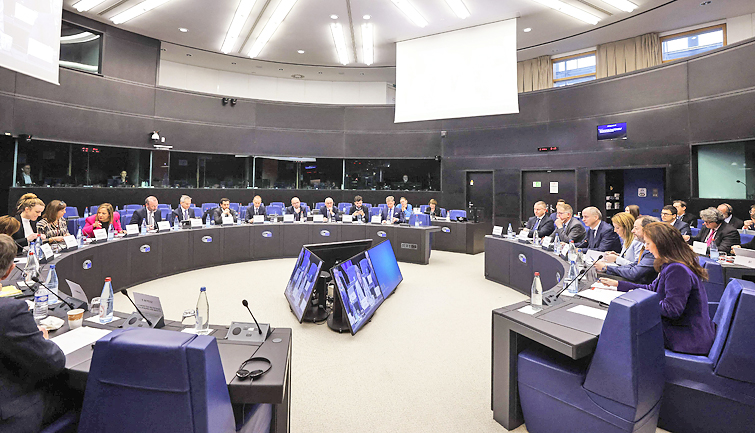AFP – European Union (EU) member states announced yesterday the adoption of a mechanism that would bring the bloc’s industrial imports under environmental standards by charging for the carbon emissions linked to their production.
Known as the “Carbon Border Adjustment Mechanism” (CBAM), the agreement will cover industrial imports from the regional bloc’s 27 member states, targetting the highest polluting products first.
“CBAM will be a crucial pillar of European climate policies,” said a member of the European Parliament from the Netherlands Mohammed Chahim in a statement.
“It is one of the only mechanisms we have to incentivise our trading partners to decarbonise their manufacturing industry.”
He added that it will allow the EU to “apply the ‘polluter pays’ principle to our industry”.

The agreement will initially cover a number of specific products in carbon-intensive sectors, including steel, cement, fertilisers, aluminium, electricity and hydrogen, the European Council said.
Indirect emissions would also be included in the regulation.
This means that in practice, the importer will have to declare the emissions directly linked to the production process, and if these exceed the European standard, acquire an “emission certificate” at the price of carbon dioxide in the EU. If a carbon market exists in the exporting country, it will only pay the difference.
Under the provisional agreement member states came to yesterday, a test period for the agreement will begin in October 2023, during which importing companies will have to report their carbon emission obligations.
The timetable for the actual implementation of the scheme, which will be gradual, will depend on further talks later this week on the rest of the EU’s carbon market reform. “The new bill will be the first of its kind,” the European Parliament said, adding that it was designed to comply with World Trade Organization rules in order to push back on accusations of protectionism.






